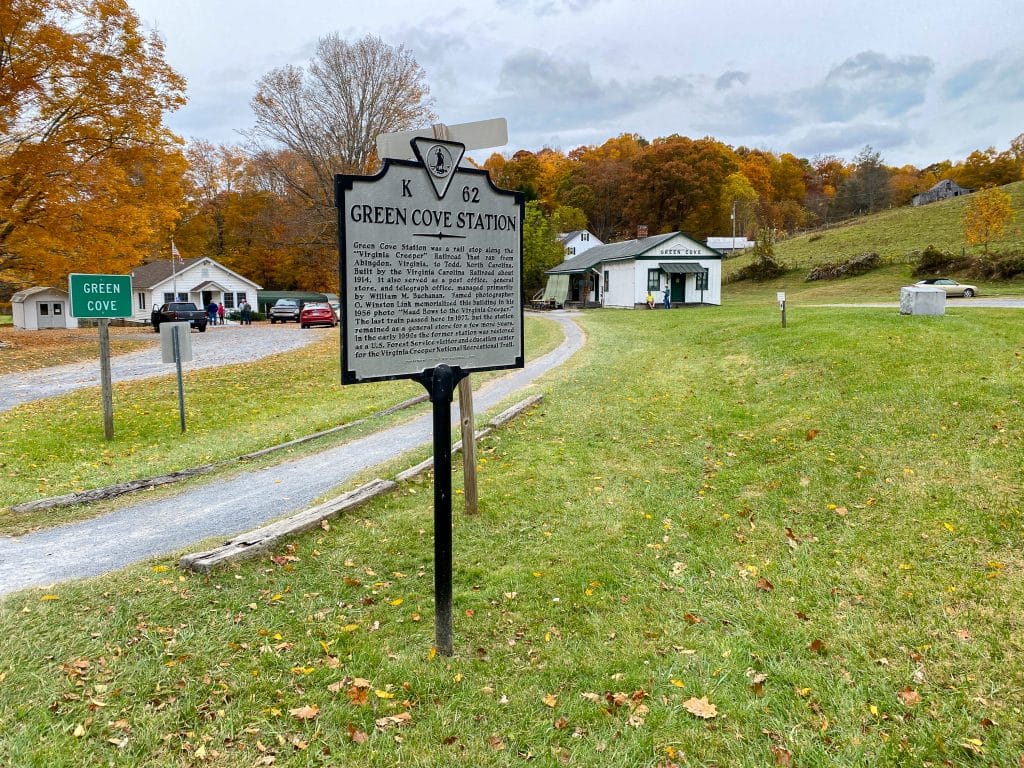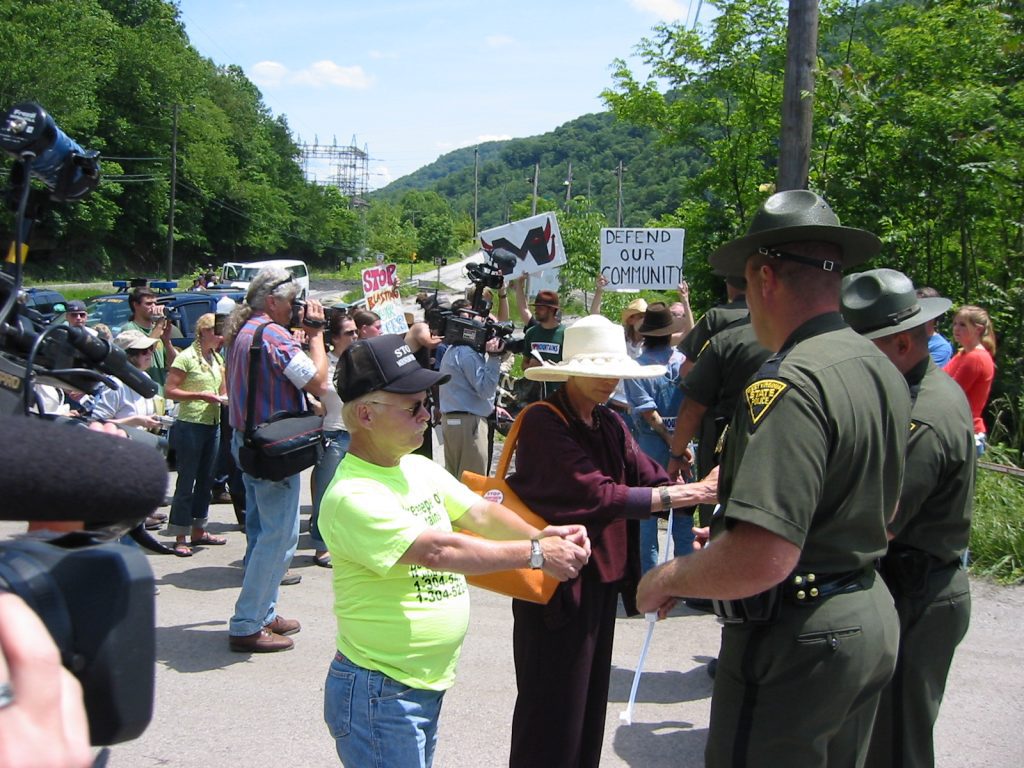Appalachian Women: A Vital Role in the Drama
With a long history of organizing and activism, Appalachian women have played vital roles in the drama of this mountainous region. Activists such as Anne Barton, Aunt Molly Jackson, and Widow Combs, all who hail from the first half to the middle of the twentieth century, provide the foundation for contemporary Appalachian women, those working both inside and outside established political and social systems. Some of these women were born and raised in the mountains, while others moved to the region from other areas or have direct ancestral ties to the land as a result of out-migration. Despite significant contributions to the region, many historical figures remain unknown, and unfortunately, their contemporary sister activists have followed a similar fate. Often this lack of recognition is due to male figures overshadowing the women’s accomplishments, while other times it is a result of the entire nation’s dismissal of or disregard for the region.
In this latter vein, Appalachia fits the paradigm first promoted by longtime activist, Dr. Helen Lewis, as she argued in the early 1970s against the model of poverty so popular in the 1950s and ‘60s. With the model of poverty, outsiders, and even some insiders, blamed Appalachians for their own misfortunes, citing ignorance and laziness, as well as resistance to “progress” as natural tendencies of the mountain residents. Instead, Lewis characterized Appalachia as an internally colonized region, where Appalachians are victims of national exploitation and capitalistic greed. When I interviewed her in 2005, Lewis remarked, “[I]f you want to see the bad side of capitalism, just come to the coalfields and look at the extraction of resources and the control over people’s lives […] and that history will turn you against capitalism in a day.”
Indeed, the Appalachian coalfields have spawned great activist movements among women, women grown weary of coal companies’ abundant abuses and safety violations that often lead to the death of family members and friends. Anne Barton serves as only one example of hundreds who have dared to speak out against rich, politically powerful coalmine owners. On April 13, 1932, the New York Times reported that several Pineville, Kentucky, natives had traveled to Manhattan to speak before Socialist party members concerned with civil liberties violations enacted by coalmine owners and their gun thugs. The reporter explained that Anne Barton “was released recently from jail at Pineville, Ky. (sic), where she had served three months for attempting to organize a branch of the National Miners’ Union.” Within this one sentence, the reporter defies stereotypical perceptions that internationally renowned labor advocate, Mary Harris “Mother Jones”, served as the only woman to foster union organizing in the early twentieth century. In most every photograph captured of Mother Jones in a group setting, she is the only woman present, perched stoically among her male counterparts.
Unfortunately, Barton has been relegated to a bit part in history, though her jail mate during the ordeal, Aunt Molly Jackson, has faired better through time, with Shelly Romalis devoting an entire book to her (Pistol Packin’ Mama: Aunt Molly Jackson and the Politics of Folksong, 1999). Mary Magdalene Garland, or Aunt Molly Jackson, is best known for her protest songs that document the horrors of life in the coalfields, specifically Harlan County, Kentucky. As both a daughter and wife of coalminers, Aunt Molly Jackson possessed firsthand knowledge of this life, with her father losing his sight in a mining blast and a husband losing his life. In her songs she gives voice to miners killed, children starving, and women struggling to nurture their families. Aunt Molly Jackson’s activism went beyond mere song, however, for early in her life she robbed a company store of a little over $5 worth of groceries to feed the malnourished children of two neighboring families.
Ollie “Widow” Combs serves as another important activist in Kentucky coal history. In 1965, at the age of 61, she laid her body down in front of a bulldozer slated to begin surface mining on her property. As a result of her actions, Widow Combs was literally picked up and carried off her own property by police. Before the Knott County judge ordered her to 20 hours in jail, she proclaimed, “I just want to live out my life in my hollow and be left alone.” Though she did serve her jail time, Widow Combs’s activism brought national attention to the environmental and human impact of strip mining. The very next year the Kentucky General Assembly passed legislation mandating stricter surface mining guidelines, despite problems over the next few years of enforcement of that legislation. It would not be until 1977 when the United States Congress passed the Surface Mining Control and Reclamation Act. Clearly, however, Widow Combs did make a difference. She prompted the preliminary state regulatory legislation that set the stage for later national intervention, a most significant contribution to the Appalachian history books.

Intent on capturing such historically important moments, many contemporary Appalachian women have devoted their life work to this endeavor. Mimi Pickering, a documentary producer with Appalshop in Whitesburg, Kentucky, has created a career focused on educating outsiders and insiders alike about the myriad injustices suffered by Appalachians. Her repertoire of reporting demonstrates this as she first focused her camera lens on the Buffalo Creek Flood disaster of 1972. Through her coverage of this horrific, yet preventable act of man, audiences quickly discern the dastardly doings of the Pittston Coal Company, along with the company’s egregious negligence that left 125 dead and 4,000 homeless. During her interview last summer, she remarked, “I want to be remembered in history as a good filmmaker who spoke her mind, who tried to amplify the voices of people who weren’t always heard in the crowd. And in doing so, to change people’s minds and cause them to take action to make the world a better place.” Through her own actions and words, along with her documentaries on such notable Appalachian figures as labor singer/songwriter Hazel Dickens, Mimi Pickering provides plenty of role models for making the world that better place.
Marat Moore does so as well. Born and raised in East Tennessee, Moore has assumed many roles in the fight for justice in the coalfields. Most notably, in 1996 she published a collection of interviews and photographs of women miners entitled, Women in the Mines: Stories of Life and Work. In her work she celebrates physically and mentally strong women who, out of economic need and necessity, ventured underground and dared to defy longtime superstitions about women in the mines.
Cosby Totten, Appalachian miner and women’s nontraditional job advocate, displays common attributes of these revolutionary women. Totten and Moore both engaged in the act of civil disobedience most discussed in connection with the 1989 Pittston coal strike when 39 women, identified as the Daughters of Mother Jones 1-39, peacefully occupied the Pittston regional headquarters in Russell County, Virginia. Similar to Widow Combs, these determined women brought national attention to the injustices and exploitation suffered by coalminers.
Clearly, all these women, the historical and the contemporary, and many more not named here, contradict stereotypes and reductive caricatures of Appalachian women commonly held by outsiders. And a new generation continues this defiance as young women carry torches ignited by their female ancestors’ fire and bravery. Young women such as Patricia Feeney, dedicated organizer for the Ohio Valley Environmental Coalition, provide hope for the future of Appalachia. They persist in efforts to promote positive leadership in the region and to preserve both mountain people and land. Appalachia is all the better for it.
Related Articles
Latest News
More Stories

Leave a comment
Your email address will not be published. Required fields are marked *




